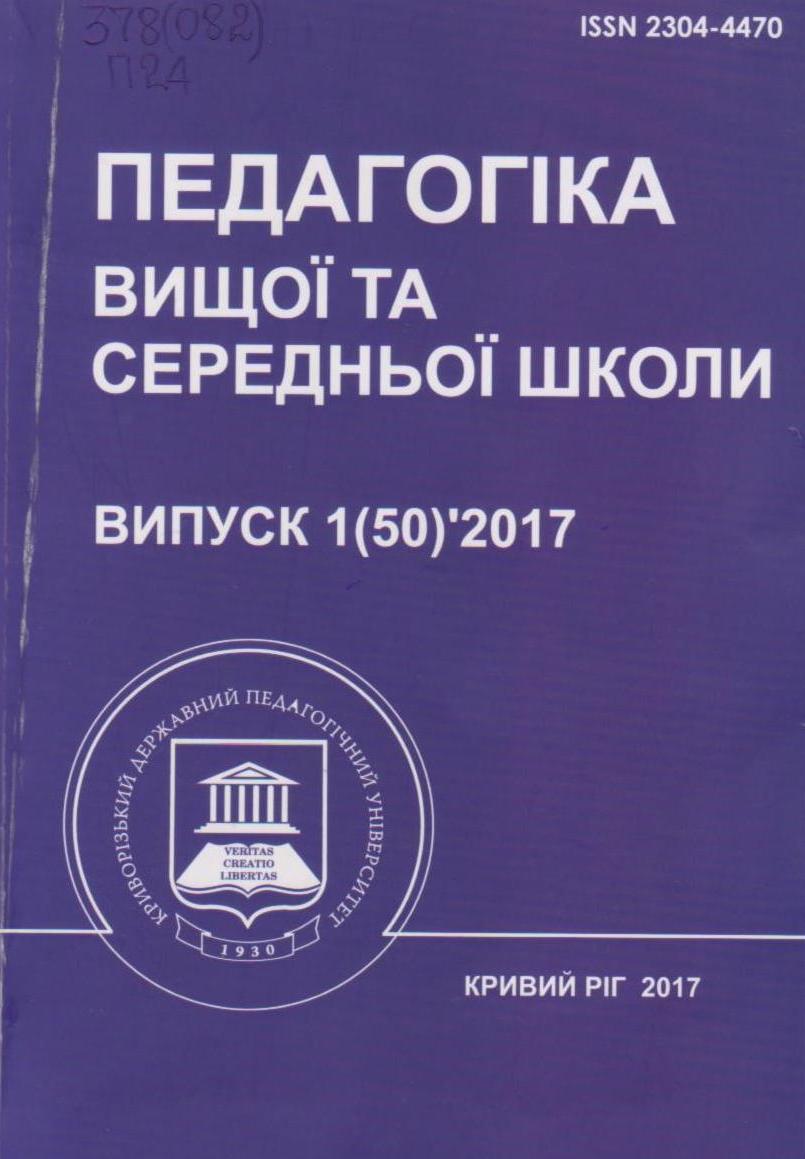The development of pedagogical creativity of future teachers in the system of vocational training
DOI:
https://doi.org/10.31812/pedag.v50i0.1312Keywords:
creative work, creative personality, a future teacher, pedagogical work, creative abilities, professional development of future teacher, creative style of activity, the conditions of formation of creative personalityAbstract
In the article the problem of pedagogical creativity of future teachers in the system of vocational training is contemplated. The author concludes that the problem of high school teaching is to make learning a creative process, which in its turn stimulates the formation of the creative personality of future teachers. These two processes are closely interrelated and interdependent, as a creative person determines the nature of pedagogical activity. Increasing the role of the human factor in creating a competitive and dynamic economy based on knowledge and creative work of professionals, actualizes the problem of modernization of training of specialists in the field of pedagogical activity. Achieving this task combined with solving the problem of training a creative teacher, endowed not only creative thinking, a tendency to creative work, but also the ability to absorb by creativity and engage their students to creative process, thus improving the creative potential of their personality. It can be claimed that the work of a teacher is a kind of resolving conflicts between existing knowledge that gives us a chance to project, predict the future, and new one, prior to unpredictable results. The basis of such training is forming a creative, spiritually and morally rich personality of a teacher. It is not possible to teach creativity, but it is entirely possible to develop a need in non-standard solution of professional tasks, to equip future teachers with methods of creative activities, to create conditions for the fulfillment of the creative personality in the pedagogical process. It is important not only to develop the creative abilities of a future teacher, but also to help him to master didactic and educational technologies, that let involving students in creativity successfully, to create conditions for creative manifestation and affirmation of their identity. The formation of individual, creative style of a future teacher’s activity provides for a systematic, purposeful work, the foundation of which is the formation readiness of student to co-creation with pupils. One of the important task of the educational process of higher educational school is to create favorable educational environment for development of personality of student, implementation of his creative potential, revealing creative possibilities and training for various creative activities. The formation of individual creative style of future teacher’s activity provides for organization of systematic purposeful work
Downloads
References
Кухарев М. В. Диагностика педагогического мастерства и педагогического творчества / М. В. Кухарев, Л. С. Решетько. – Минск : Адукацыя и выхаванне, 1996. – 95 с.
Митник О. Я. Творча особистість : [методичні рекомендації] / О. Я. Митник. – Київ : НПУ ім. М. П. Драгоманова, 2001. – 25 с.
Семиченко В. А. Теоретичні та методичні основи професійного самовиховання студентів вузу : [навчальнометодичний посібник] / В. А. Семиченко, О. М. Галус, Л. В. Задневич. –Хмельницький : ХГП, 2001. – 265 с.
Сухомлинский В. А. Разговор с молодым директором школы / В. А. Сухомлинский. – Москва : Просвещение, 1982. – 205.
Downloads
Published
Issue
Section
License
Copyright (c) 2017 Вікторія Валентинівна Іванова

This work is licensed under a Creative Commons Attribution 4.0 International License.




